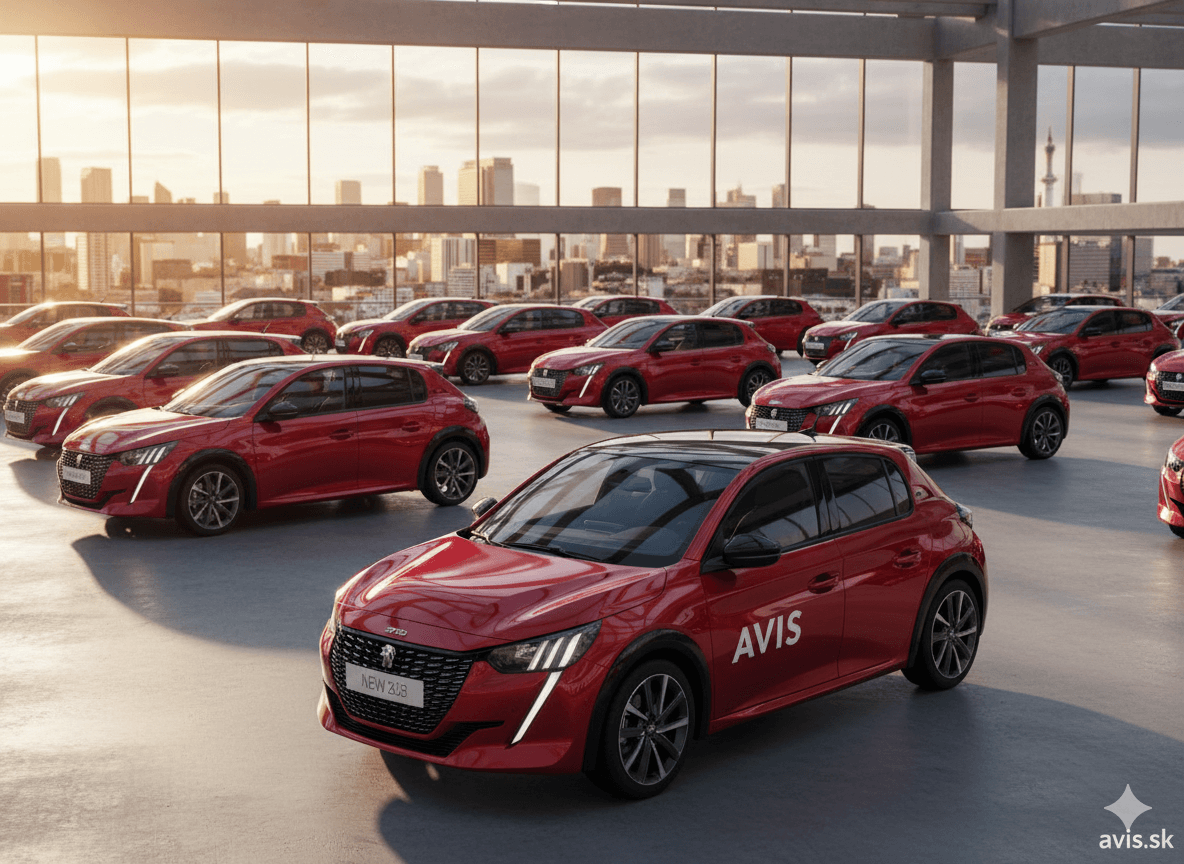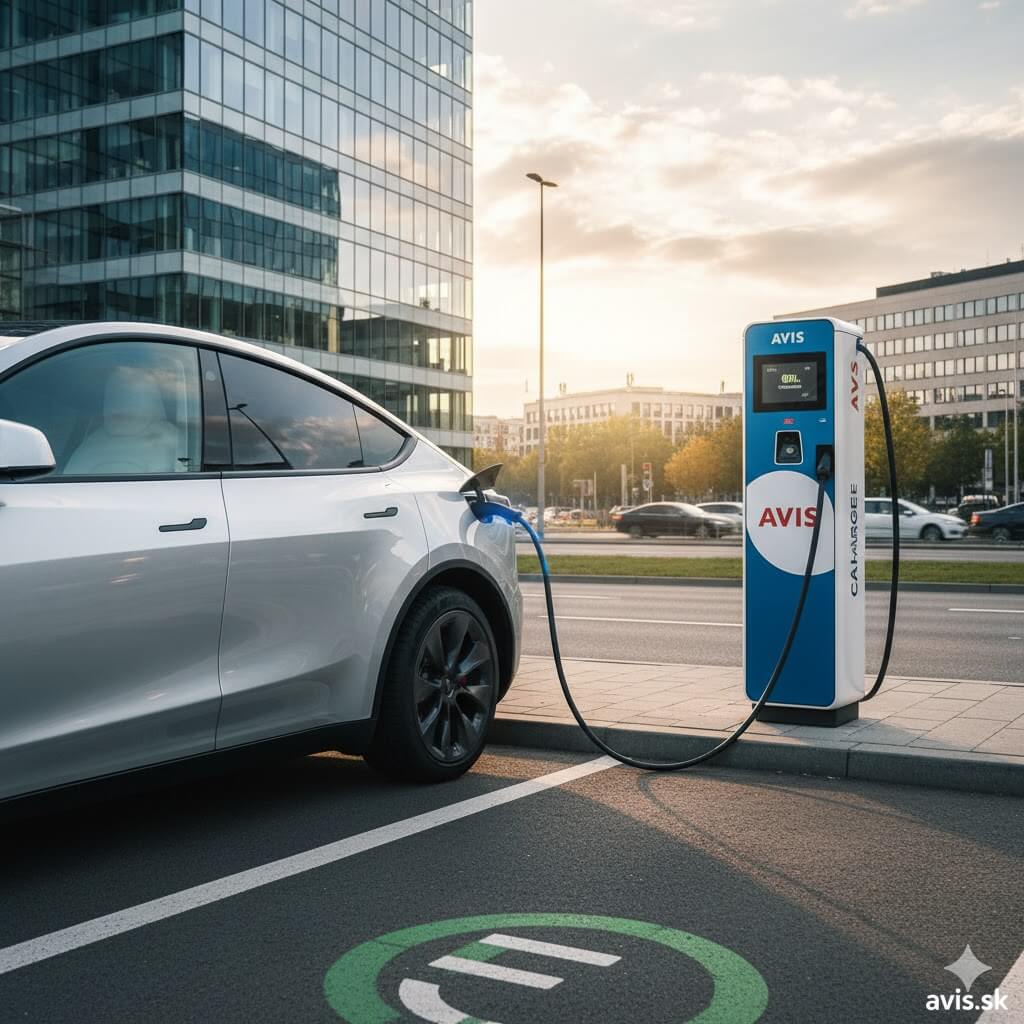Car for a startup or small business: rental vs. operating lease

Do you need a reliable car for your startup or small business, but don't want to tie up capital or risk unpredictable costs? Choosing between a short-term lease, a flexible medium-term lease and an operating lease is one of the key financial decisions for young companies. This article provides an expert but clear comparison of solutions, real figures from Slovakia and the EU, and recommendations for entrepreneurs looking for efficient and cost-effective mobility. The article is based on information from AVIS Slovakia, foreign analyses (Statista, Deloitte, Leaseurope, Auto Finance Journal) and Mobility Trends 2025.
Renting or leasing? Why it is a strategic decision for a startup
When do startups address mobility?
- Product or service delivery,
- business meetings,
- project activities (IT, marketing, development),
- short-term periods of increased demand,
- team expansion,
- using a car instead of investing in your own.
According to the European association Leaseurope (2024), up to 63% of small companies prefer unbundled forms of mobility that do not put a strain on cash flow. In Slovakia, we see the same trend - startups are choosing flexibility over long-term commitments.
Comparison of solutions: rental vs operating leasing
1. Short-term rental (1-29 days)
Suitable for: start-ups that only need a car occasionally or for one-off events.
Advantages:
- Zero commitment,
- no capital or upfront fees,
- fastest availability (vehicle within 30-60 min.),
- full service, insurance, assistance,
- possibility to change category as required.
Disadvantages: higher unit price for long-term use.
Real prices (AVIS Slovakia, November 2025):
- small cars from 39 €/day,
- medium class 55-75 €/day,
- SUVs from 79 €/day,
- commercial vehicles 65-110 €/day (depending on volume).
2. Medium-term rental (1-12 months)
Suitable for: startups that need flexibility without the commitment of a lease.
This type of rental is currently the fastest growing mobility segment in the EU.
Benefits:
- No commitment and no penalties on return,
- price significantly lower than short-term rental,
- full operational care (tyres, servicing, insurance),
- ideal for project staff or non-refundable grants.
AVIS MaxiRent prices (2025):
- small car from 399 €/month,
- compact class from 499 €/month,
- low-emission SUV from €599-699/month,
- vans from 699-999 €/month.
Trend 2025: according to the Deloitte Mobility Study, flexible rentals are up 22% year-on-year among companies .
3. Operating leases (3-5 years)
Suitable for: established companies with long-term planning.
Benefits:
- Stable monthly payment,
- full service, insurance, tyre service,
- advantageous for long-term use.
Disadvantages:
- 36-60 months commitment,
- contractual penalties for early termination,
- company may not grow too fast - changing car type is complicated,
- requires creditworthiness.
Real lease prices (SK 2025):
- small car 230-290 €/month,
- lower middle class 300-410 €/month,
- SUV 480-650 €/month,
- vans 480-780 €/month.
Direct comparison: renting vs leasing
| Solution | Cash-flow | Input costs | Flexibility | Service | Total commitment |
| Short-term rental | Most flexible | 0 € | 10/10 | Full | 0 days |
| Medium-term rental | very good | 0 € | 9/10 | Full | 30 days |
| Long term rental | Stable | 0-20% | 3/10 | Full | 36-60 months |
How to decide ? Criteria for startups

1. Planning horizon
- Up to 6 months: clear choice - medium term lease,
- 6-24 months: lease or hybrid model,
- 3-5 years: operating lease.
2. Number of employees
- 1-5 people → rental,
- 5-20 people → mix of rental and leasing,
- over 20 people → leasing with reserve capacity through rental.
3. Financial health of the startup
The biggest advantage of hiring is that it doesn't put a strain on the balance sheet and reduce the company's ability to draw down investments. According to EY (2024), investors prefer startups without long-term liabilities.
Specific examples from practice
Example 1 - IT startup (6 people)
- Need for mobility: 3 months of intensive customer visits,
- Solution: a MaxiRent SUV for 3 months,
- cost: approx. 599 €/month, all included.
Example 2 - E shop in expansion
- Need: temporary delivery capacity during the season,
- solution: L2H2 delivery for 2 months,
- cost: 899-999 €/month.
Example 3 - Consulting startup
- Solution: 1 car on lease + 1 car on lease according to the project.

Mobility trends 2025-2030
- Rental growth of 18-25% per year (source: Statista Mobility Outlook 2025),
- Business acceleration → growth in demand for flexible solutions,
- EV mobility in rentals growing by 31% year-on-year, especially in short-term use,
- young companies prefer "mobility-as-a-service" to ownership.
Frequently Asked Questions (FAQ)
Is car rental tax deductible for a startup?
Yes, the monthly rental is a fully tax deductible expense including VAT under the Income Tax Act.
Is leasing worth it if I don't know how the business will grow?
Most of the time, no. Leasing is suitable for stable companies with predictable needs.
Can I lease a car for 1 month?
Yes - medium-term leases (AVIS MaxiRent) start from as little as 1 month.
Is renting more expensive than leasing?
Monthly yes, but in terms of flexibility and no penalties it is often cheaper in the end.
Does AVIS also provide cars for startups with no history?
Yes - leasing does not require creditworthiness or financial history.
TL;DR
- Startups need flexibility → renting is the ideal choice.
- Leasing is only beneficial for stable long-term use.
- Leasing does not burden cash flow or balance sheet.
- A medium-term lease delivers the optimal balance of price and flexibility.
- The mobility trend is towards solutions without strings attached.
Keywords and entities
Main KWs: car rental, operating lease, startup, small business, business mobility.
AVIS, AVIS MaxiRent, AVIS Lease, Statista Mobility, Deloitte Mobility Study, Leaseurope, cash-flow, fleet management.
Conclusion and CTA
For a startup or small business, a car is an important part of growth. Choosing the right solution can make the difference in whether a company maintains financial flexibility and the ability to respond quickly to opportunities.
To get a no-obligation quote or for advice on the choice:
👉 visit avis.sk or contact the AVIS sales team.